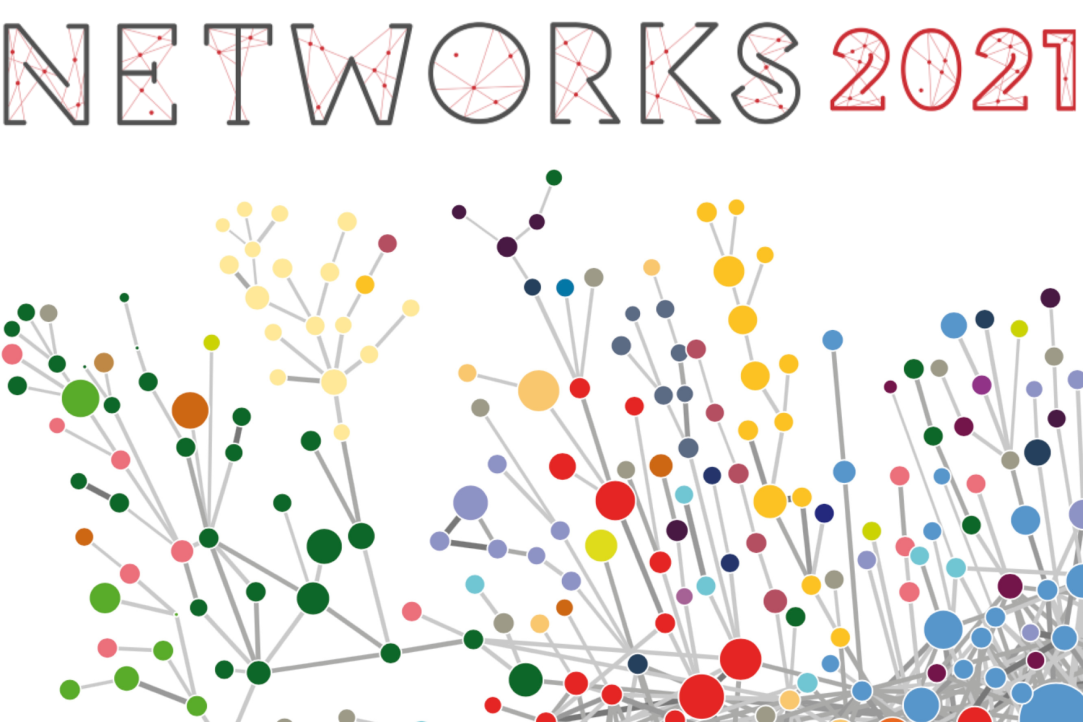ANR-Lab employees took part in the Networks2021 conference
On July 5-10, Networks2021 was held – joint conference of Sunbelt and NetSci, the main international conferences on network analysis and network science. Nine laboratory members made oral and poster presentations at the conference and took part in workshops within the conference framework.

The following speakers spoke at the poster session:
- Aryuna Radnaeva, "The practice of applying qualitative network analysis in empirical research: a systematic literature review"
- Ekaterina Shabanova, "Professional development programs for university administrators: the network-analytic approach to effectiveness evaluation"
- Maria Kartuzova, "Influence the ego networks on the success of the horizontal career of the self-employed working e-platform as marketplace"
- Stanislav Moiseev, Daria Maltseva, "Myths About the Crowd: from “the Madding Crowd” to the Communities of Practice"
- Anna Sokol, "Tracing the Development of Environmental Science: a bibliometric network analysis"
- Alina Arslanova, "Determinants of Cross-Generational and Long-Term Scientific Impact using Network Methodology"
- Vladimir Batagelj, "Normalizations and Projections in Analysis of Weighted Two-Mode Networks"
- Marjan Cugmas, Aleš Žiberna, Anuška Ferligoj, "Choosing the number of clusters and blockmodel type based on the Relative Fit measure"
The conference was held online and included 161 sessions, 21 workshops, and 22 lectures.
Feedback from participants:
Aryuna Radnaeva
This year I made my debut at a conference of the scale Networks 2021, which brought together two other significant conferences on Subnelt and NetSci networks. Thanks to the online format, it was possible to attend a wide variety of workshops, seminars, sections, and plenary sessions. I presented my research at the poster session, where other conference participants joined, asked questions, and arranged discussions. I was fully convinced that I was dealing with a significant scientific problem, having attended similar thematic sessions. This conference also gave me the chance to meet the researchers whose work I have read and cited.
Daria Maltseva
This was the 41st Sunbelt conference, which was the seventh for me, the second online, and the first in conjunction with the network science conference NetSci, which was held for the 16th time. This year's conference was historic: for the first time on the same platform, the communities of "physicists" (network science) and "lyricists" (social network analysis) - both similar and different at the same time - met. Therefore, the plenary sessions with such well-known researchers as Russell Bernard, Lazlo-Albert Barabashi, Mark Newman, and others were very lively and interesting.
Traditionally, workshops were held before the conference, as well as several satellite events. I attended seminars on network analysis in R and Python, got acquainted with the new program for bibliometric analysis CADRE, attended a meeting of the community of young network researchers, where they discussed my article (“SNA as a field of invasions”), and a meeting of the community of women in network science. Stas Moiseev and I made a presentation at the Bibliometric Applications section, which was attended by other colleagues from the laboratory and external speakers. I liked the formats of sessions for presenting posters and short 5-minute presentations of the Lightning session presented at the conference - due to them there was a feeling of live academic communication, which is now so lacking. I hope that my colleagues and I will go to Australia for the 42nd Sunbelt next year, which will be held in person!
